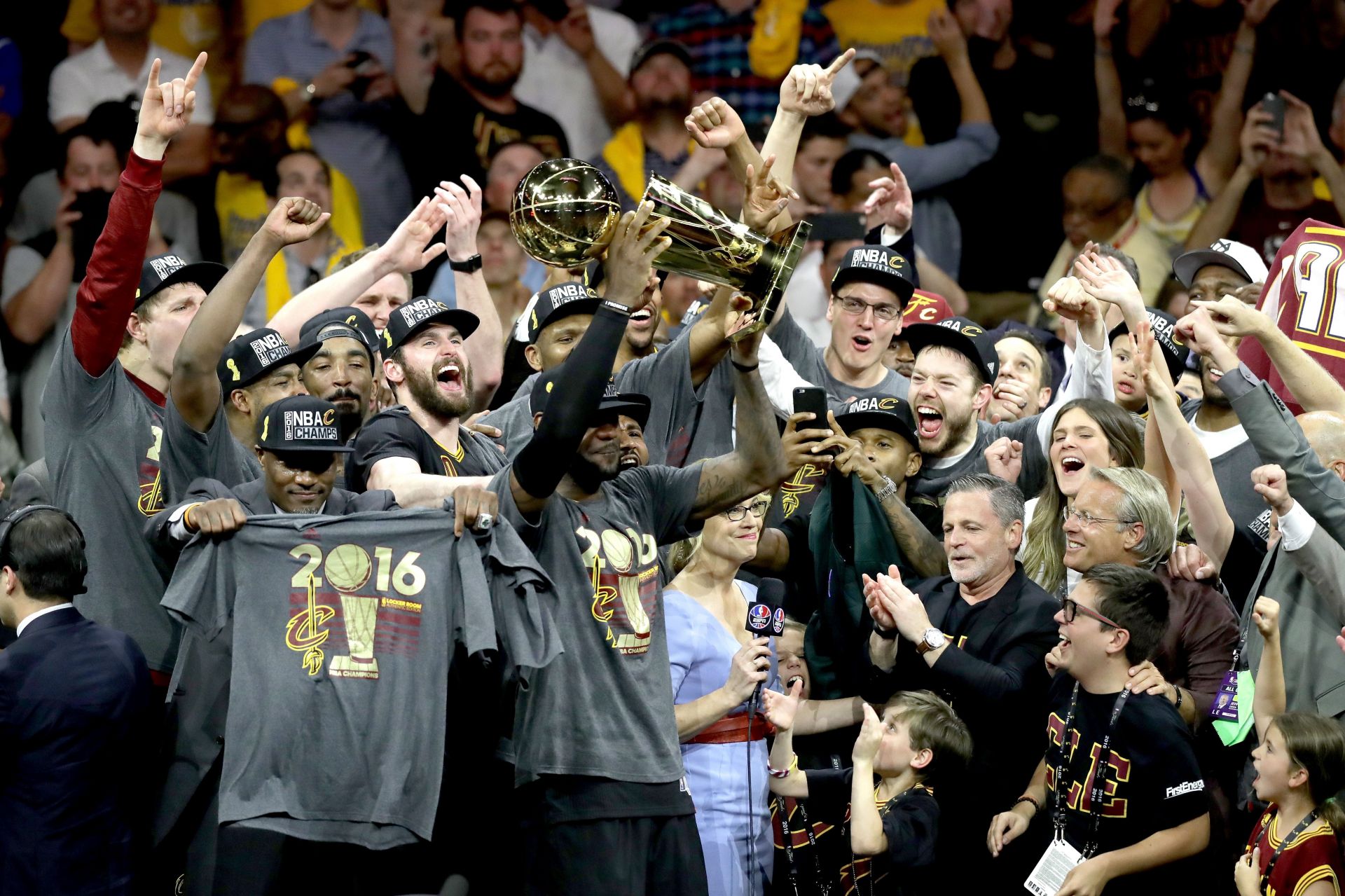
How many 3-1 leads have been blown in the NBA playoffs? Ranking defeats from the jaws of victories ft. Lakers, Knicks & Warriors
The Los Angeles Lakers defeated the Golden State Warriors in Game 4 of the Western Conference Semi-Finals to take a 3-1 lead in the series. The series now stands at 3-2 following a vital Warriors victory.
So, how often does a team come back and win from a 3-1 deficit? Since the NBA's inception in 1946, there have been 279 playoff series in which one team has led by 3-1.
Only 13 teams in NBA history have managed to claw their way back from that deficit. In other words, teams leading 3-1 go on to win the series over 95% of the time.
NBA legends such as Kobe Bryant, Steph Curry and Kevin Durant have been part of teams which blew a 3-1 lead. Which of those 13 teams blew it the worst?
Ranking the 13 blown 3-1 leads in NBA playoffs history
#13. 2002-03 Orlando Magic
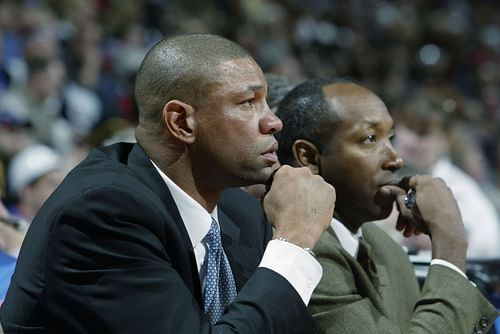
In the first round of the Eastern Conference, the #1 seed Detroit Pistons fell behind 1-3 to the #8 seed Orlando Magic. The Magic deserve some leeway for blowing a 3-1 lead since they were never expected to be in that position in the first place.
The Pistons were a vastly superior team and would win the title the following year. The Magic relied too heavily on their lone All-Star, Tracy McGrady, to carry the bulk of the scoring load. McGrady averaged nearly 32 points that series, whereas only one of his teammates averaged over ten points. The Magic overperformed to go up 3-1 and it's not too surprising that they ended up losing from that position.
#12. 2005-06 Los Angeles Lakers
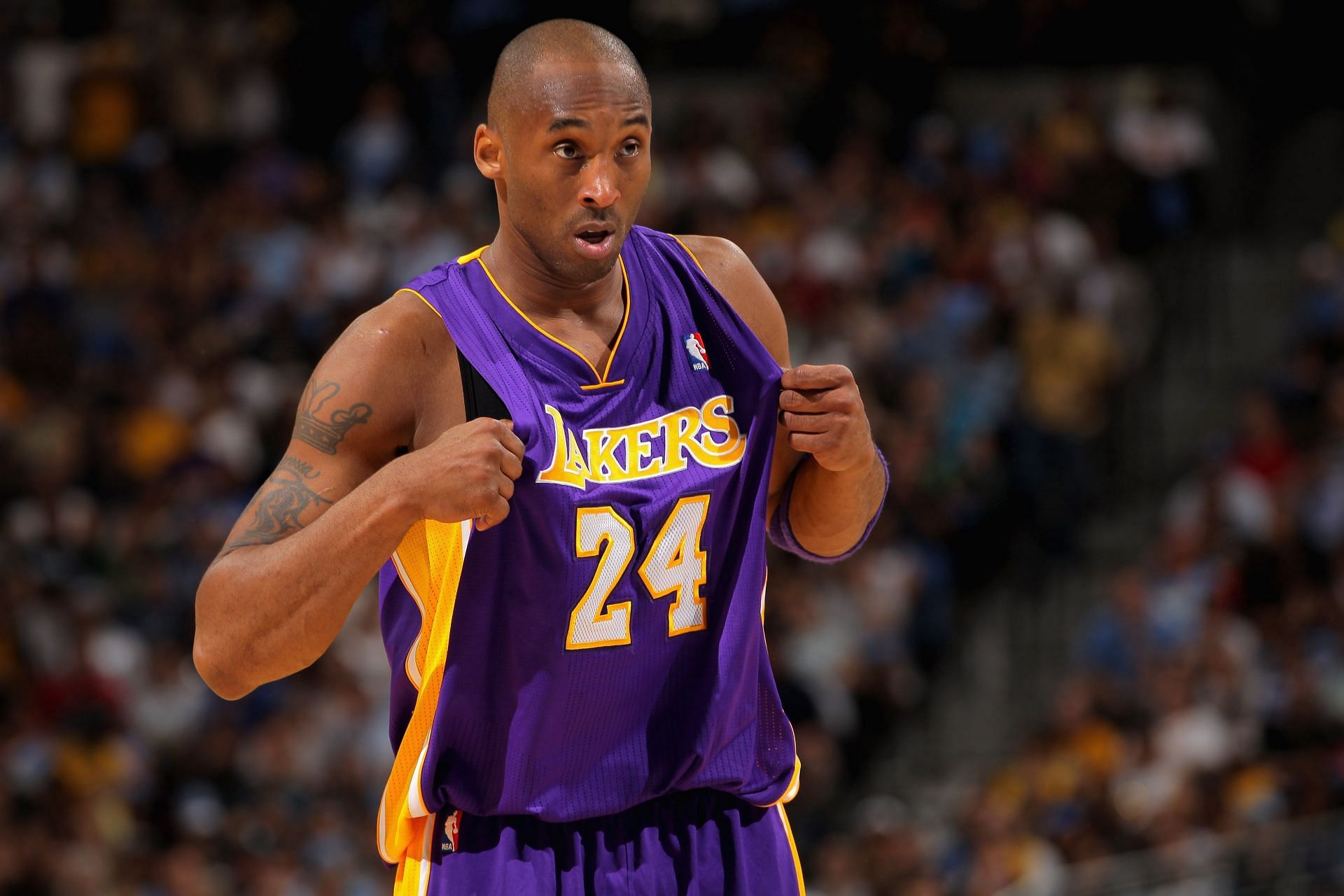
Like the Magic three years prior, the LA Lakers were never supposed to be up 3-1. The #7 seed Los Angeles Lakers found themselves up 3-1 against the #2 seed Phoenix Suns in the first round of the NBA playoffs.
Unlike this year's #7 seed Lakers, the 2005-06 Lakers had not underperformed in the regular season and had finished around where they were expected to.
After going down 1-3, the Suns finally decided to play like a #2 seed. The late great Kobe Bryant scored 50 points in Game 6, in what could have been a famous close-out game performance. But the Suns held on and won in overtime. They proceeded to blowout the Lakers by 31 points in Game 7.
#11. 2019-20 Utah Jazz
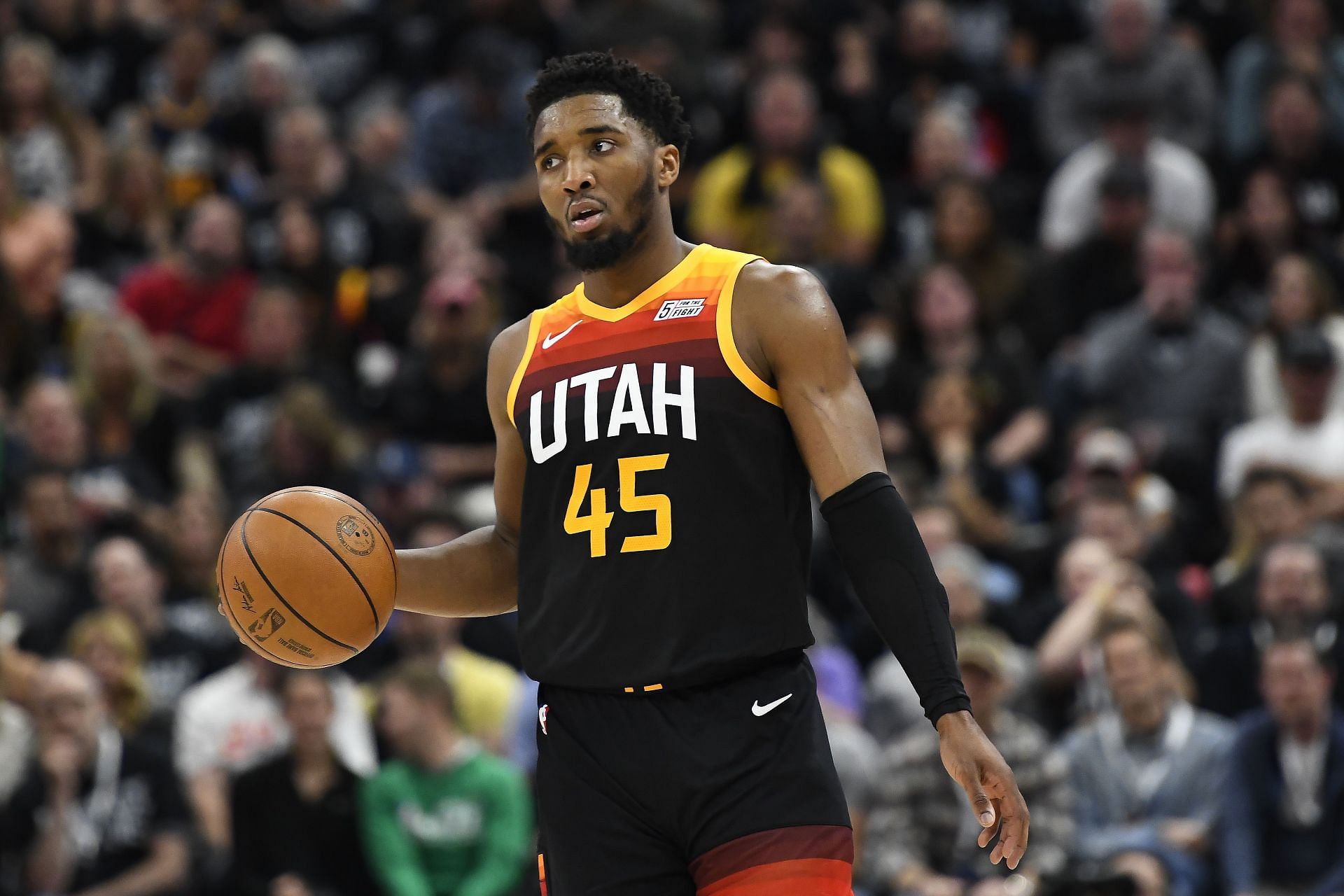
Like the two previous entries on this list, this one also features a team exceeding expectations on the back of a historic scoring outburst from their star player.
Donovan Mitchell put on a show, scoring thirty-two percent of his team's points against the #3 seed Denver Nuggets in the first round of the NBA playoffs. This included two 50+ point games, including 57 points in Game 1, which the Jazz ended up losing.
The Jazz were also missing their second-best regular season scorer, Bojan Bogdanovic, who suffered a season ending injury prior to the playoffs. They also missed Mike Conley for the first two games due to quarantine restrictions.
Despite only being two wins behind the Nuggets, all these factors combined to make the Jazz the underdogs. The Nuggets duo of Jamal Murray and Nikola Jokic ultimately proved too much for the Jazz to handle.
#10. 1969-70 Phoenix Suns
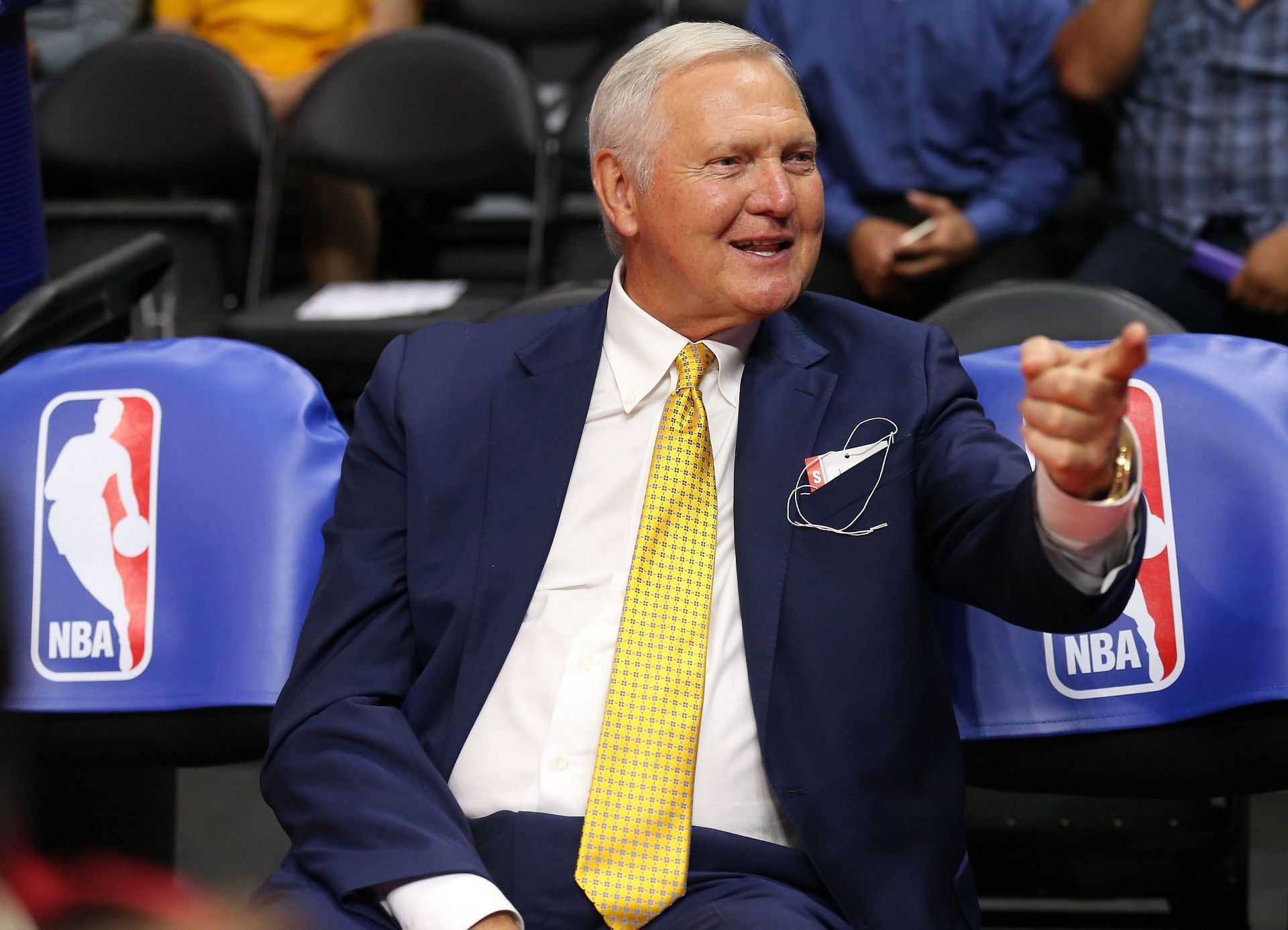
The Phoenix Suns had a losing record of 39-43 in the 1969-70 NBA season. Despite this, they found themselves up 3-1 against the #2 seed Los Angeles Lakers in the first round of the playoffs.
The Lakers had finished only seven games above the Suns. But it must be kept in mind that they were missing Wilt Chamberlain for most of the regular season due to an injury he suffered. It was the only time in his 14-year career that he did not make the All-Star team. He returned just in time for the playoffs but it took him a while to get going.
The Lakers were clearly the superior team, and once their legendary trio of Wilt Chamberlain, Jerry West and Elgin Baylor got going, the Suns had no answers. The Lakers rallied and won the last three games by comfortable margins, including a 35-point blowout in Game 7.
#9. 1978-79 San Antonio Spurs
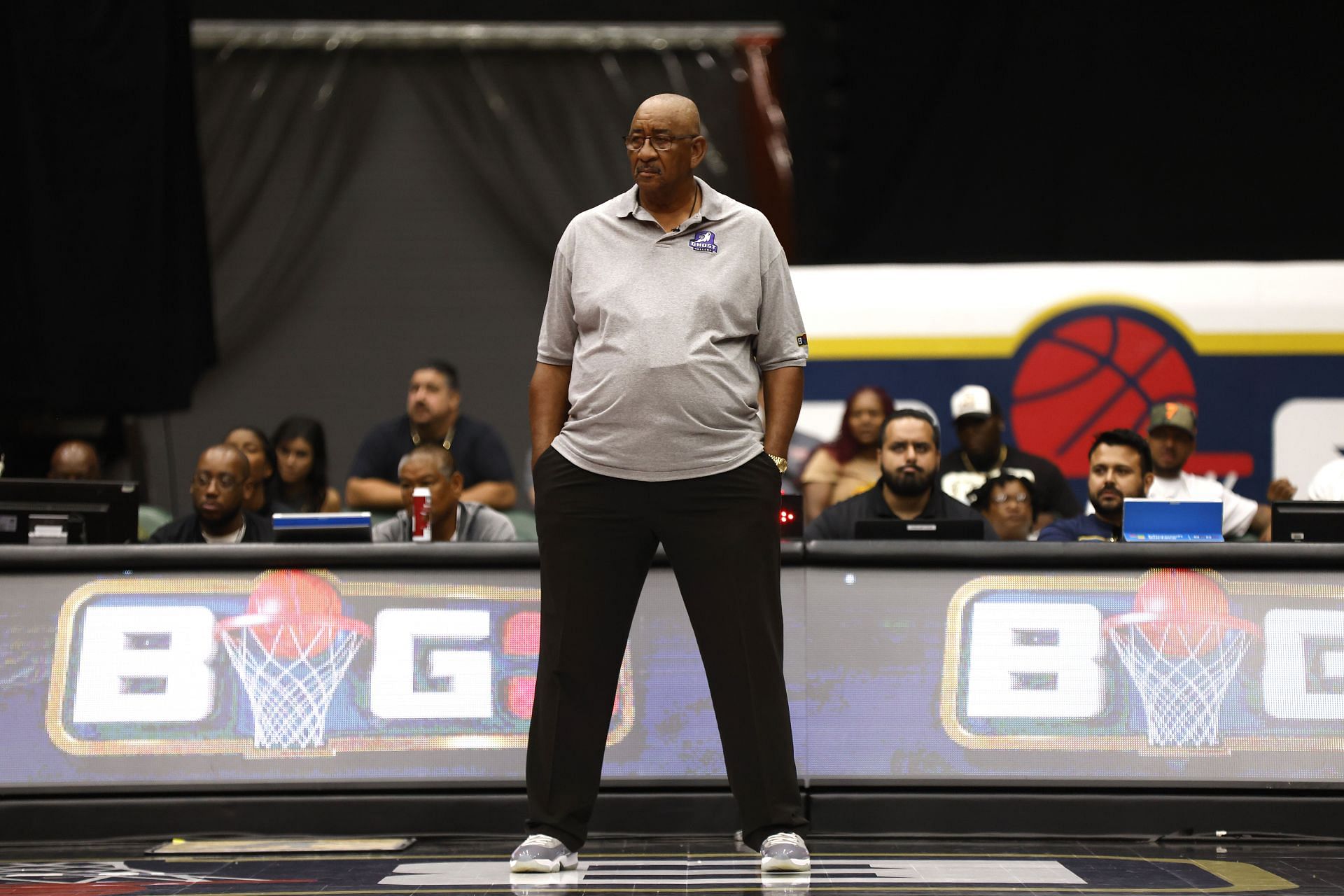
The #2 seed San Antonio Spurs were up 3-1 against the #1 seed Washington Bullets in the Eastern Conference Finals. Yes, the Spurs were in the Eastern Conference back then. The Spurs boasted two All-Stars in their line-up, Larry Kenon and the scoring champion George 'The Iceman' Gervin.
The Washington Bullets had two All-Stars of their own, Elvin Hayes and Bob Dandridge. The stars on both teams showed up in this series. Ultimately, the Bullets, who had won the championship the previous year, proved too much to handle for the younger Spurs. Gervin's 42-point outing in Game 7 was matched by Dandridge's 37 points, and the Bullets ended up winning the game 107-105.
#8. 2015-16 Oklahoma City Thunder
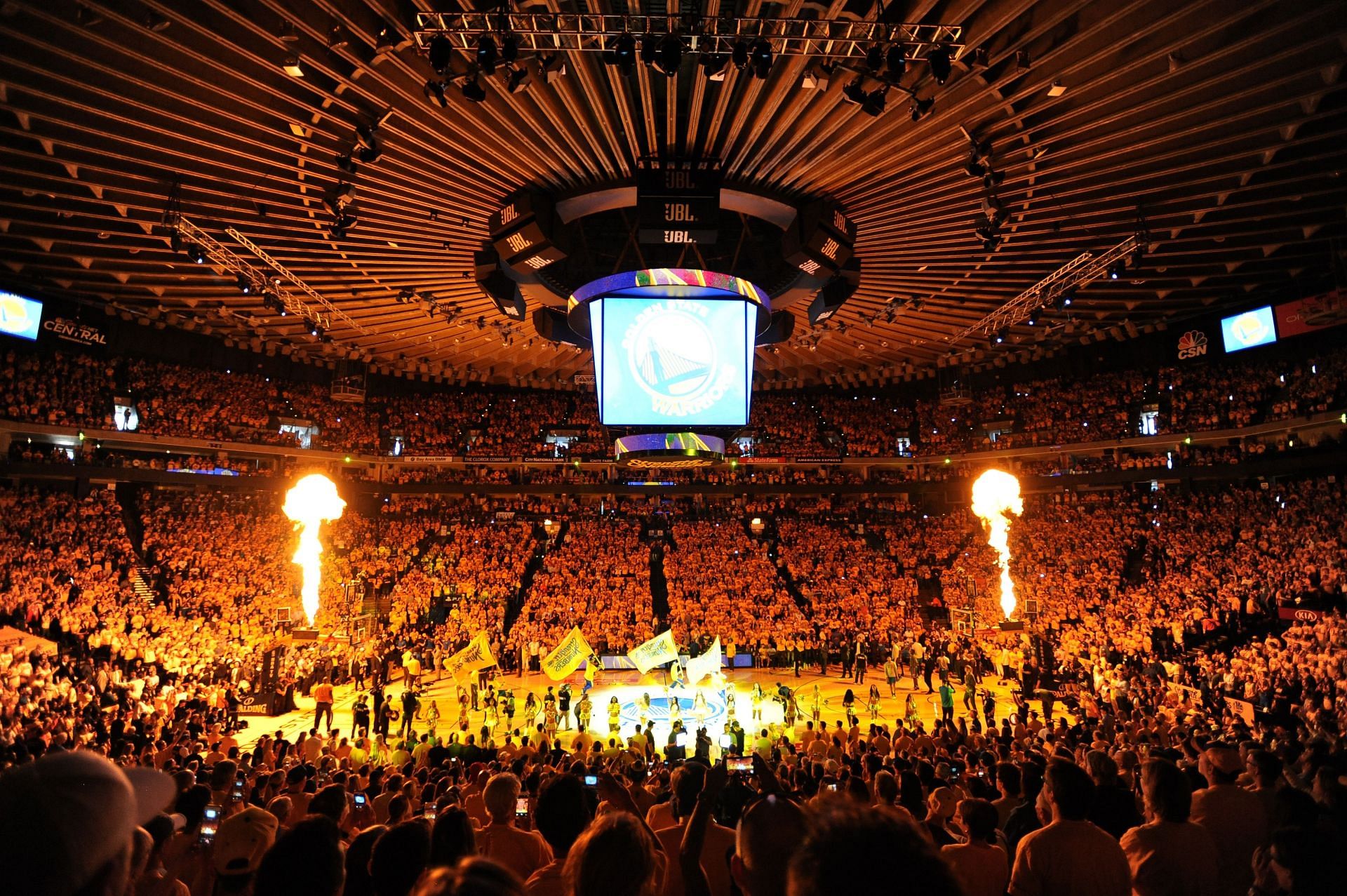
This series has gone on to acquire a lot of infamy in subsequent years due to what transpired in the off-season. However, keeping all of that aside, this collapse wasn't that bad. The Thunder finished the regular season as the #3 seed in the west, 18 games behind the #1 seed Golden State Warriors.
Kevin Durant and Russell Westbrook went on a rampage to down the #2 seed San Antonio Spurs in the Western Conference Semi-Finals. They then unexpectedly went up 3-1 against the 73-win Golden State Warriors in the Conference Finals. The Thunder didn't play poorly in the final three games; the Warriors just finally hit a switch and began playing like the #1 seed.
Durant averaged 32 points in the last three games of the series, but that didn't prove to be enough. Considering that the Warriors were always expected to win this series, the Thunder deserve some slack for blowing a 3-1 lead to them.
#7. 2014-15 Los Angeles Clippers
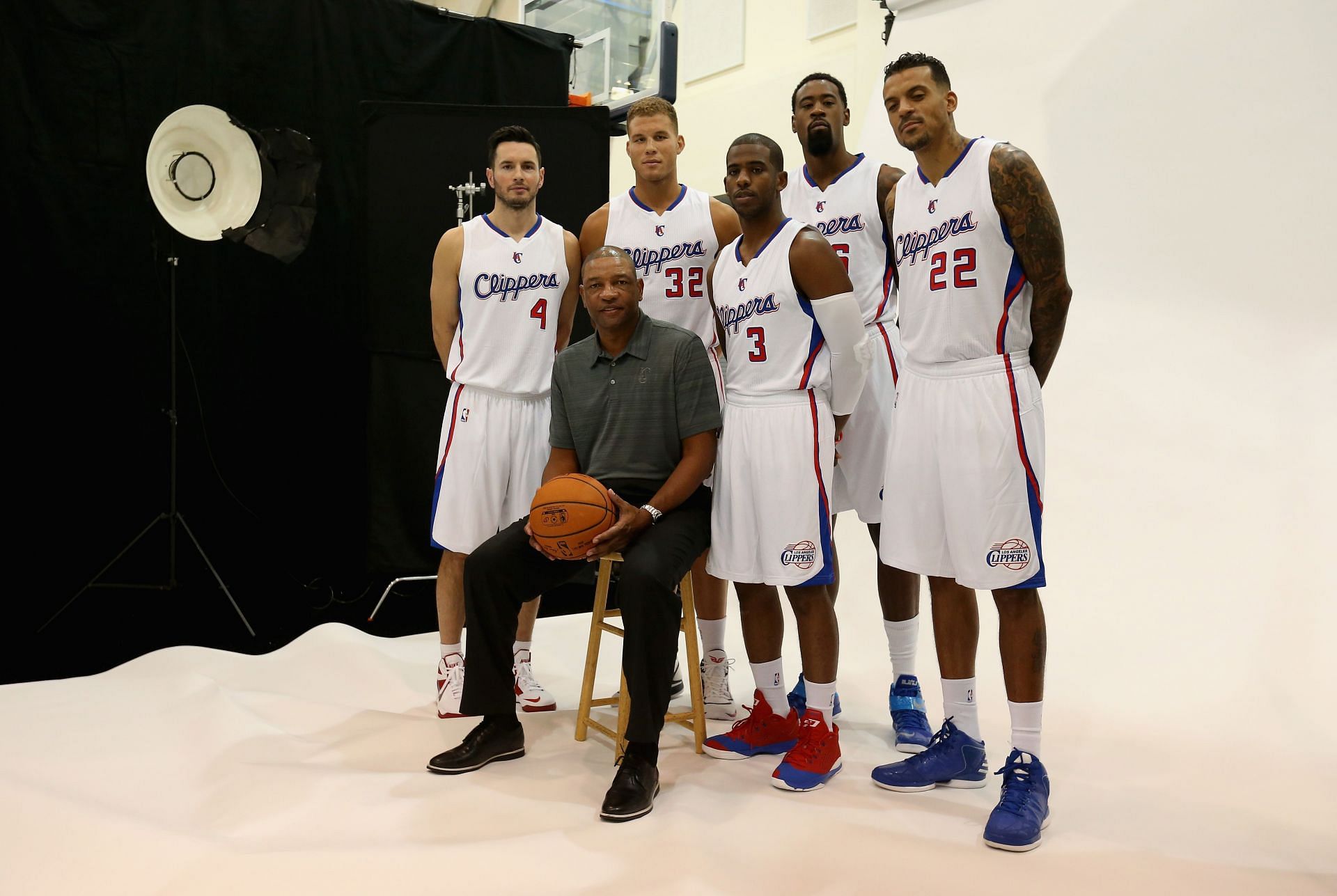
The 2014-15 season was the high point of the 'Lob City' era Los Angeles Clippers teams led-by Chris Paul and Blake Griffin. They found themselves up 3-1 against the Houston Rockets in the 2015 Western Conference Semi-Finals.
The Rockets and Clippers both had finished the regular season with 56 wins. Needing to win just one game to advance to their first Conference Finals in franchise history, the Clippers failed to finish off the job. The reason this isn't ranked higher is because Paul and Griffin played well in the remaining games. The Rockets just played better as a unit.
#6. 1994-95 Phoenix Suns
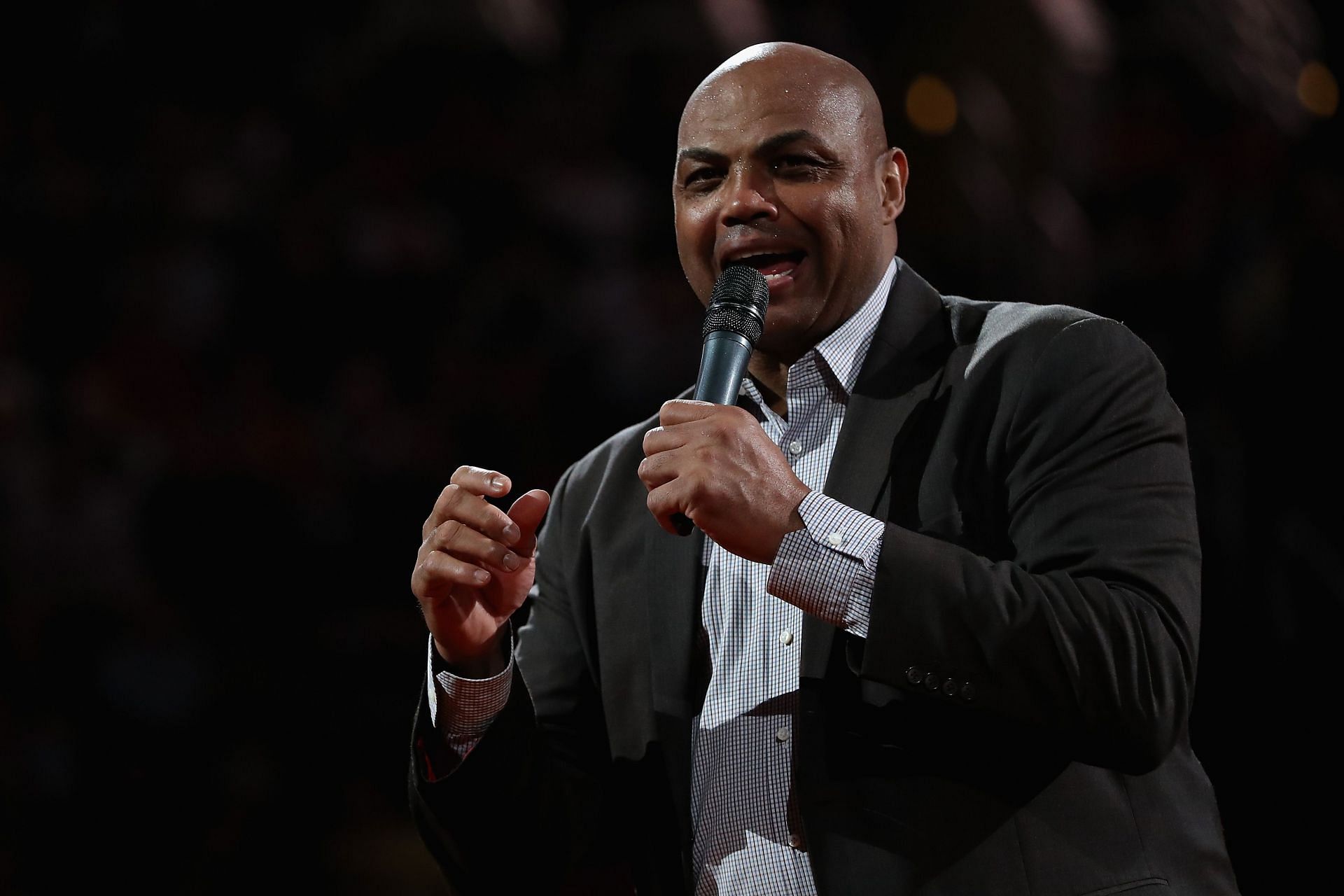
On paper, the #2 seed Suns blowing a 3-1 lead to the #6 seed Houston Rockets in the 1994-95 Western Conference Semi-Finals looks pretty bad. But there are several factors to take into consideration which show that this collapse was not as bad as the ones listed below.
The defending champions Houston Rockets had acquired 8-time All-Star Clyde Drexler just before the trade deadline. Since acquiring Drexler, the Rockets struggled to gel well as a team and went 17-18 in the remaining regular season games. But it all came together for them in the playoffs.
Hakeem Olajuwon and Clyde Drexler outduelled the Suns' stars Charles Barkley and Kevin Johnson in the last three games. A 46-point outing from Johnson in Game 7 was in vain as the Suns fell short by one point, losing 114-115.
The Rockets went on to sweep the Orlando Magic in the finals for their second straight title, becoming the lowest seeded champions in NBA history in the process.
#5. 1996-97 New York Knicks
This 3-1 collapse is ranked highly since it was mostly of their own doing. The #3 seed Knicks took a 3-1 lead against the #2 seed Miami Heat in the 1997 Eastern Conference Semi-Finals after an 89-76 win in Game 4. The Knicks were losing Game 5 when a fight broke out between P.J. Brown of the Heat and Charlie Ward of the Knicks.
For leaving the bench during the brawl, five of the Knicks players received suspensions. Patrick Ewing, Allan Houston and Charlie Ward were suspended for Game 6. John Starks and Larry Johnson were suspended for Game 7. Missing so many of their key players cost the Knicks dearly as the Heat won the last two games and advanced to the Eastern Conference Finals.
The Knicks managed to keep the last two games somewhat close despite not having a lot of their main rotation players. So it's fair to say they had a very good chance of winning with their full-strength roster.
#4. 1967-68 Philadelphia 76ers
When the Boston Celtics took on the Philadelphia 76ers in the Eastern Division Finals, the Celtics found themselves in unfamiliar territory. They had won the title in eight of the nine previous seasons. In the 1967-68 season, they finished as the #2 seed in the East, eight games behind the #1 seed Sixers.
With their backs against the wall after going down 1-3 in the series, the Celtics championship pedigree shone through. Bill Russell played lockdown defense on Chamberlain, holding him to just 6 of 21 from the field in Game 6 and 4 of 9 from the field in Game 7.
#3. 1980-81 Philadelphia 76ers
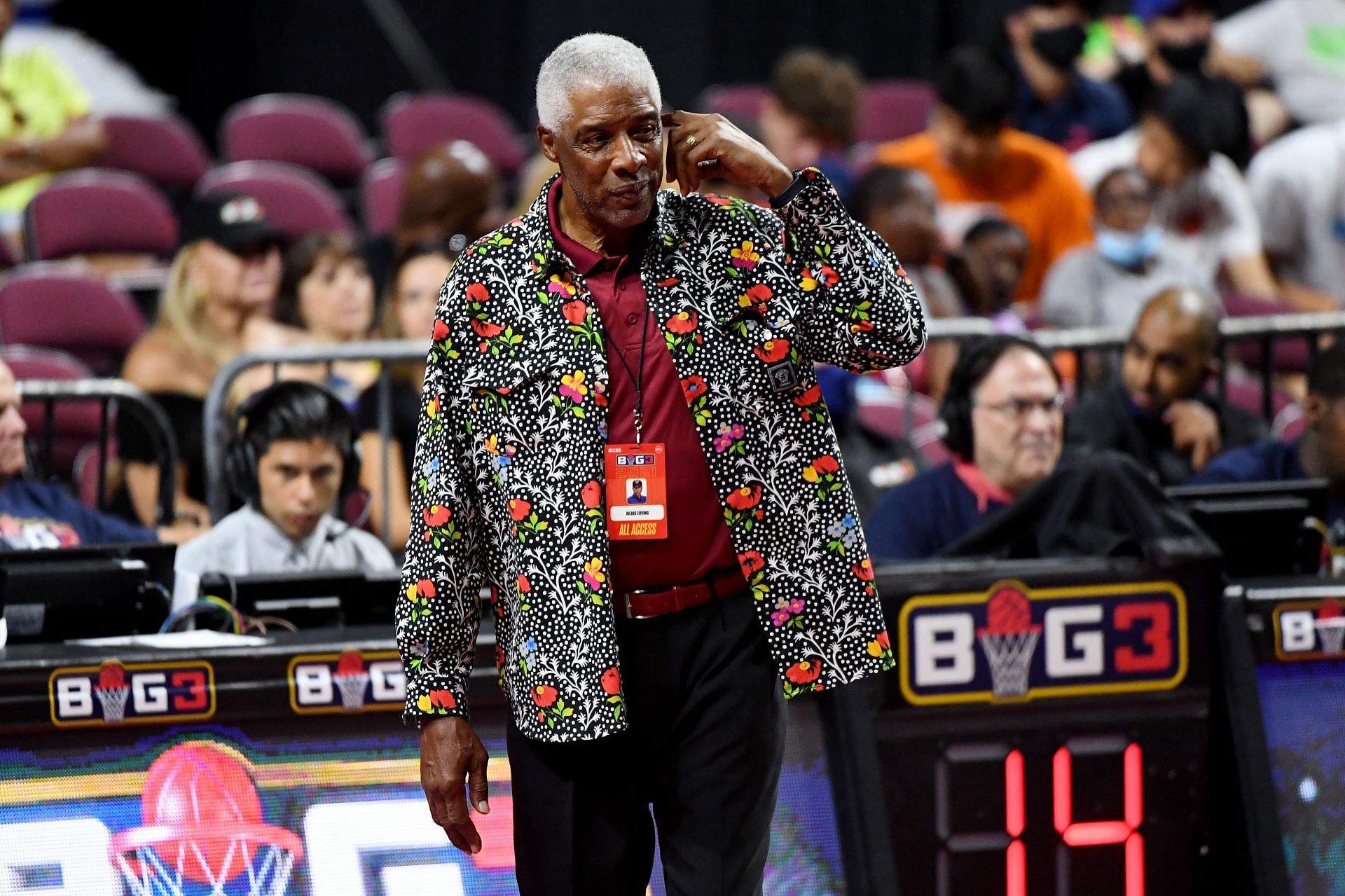
It doesn't get closer than this one. When they were paired up against each other in the Eastern Conference Finals in 1981, the Boston Celtics and the Philadelphia 76ers were evenly matched. They both boasted a 62-20 record in the regular season. Julius Erving of the 76ers, popularly known as 'Dr. J', had narrowly won the MVP award over Larry Bird of the Celtics.
Erving did not play upto his MVP standards throughout the series. The Sixers lost Game 5 and 6 by just two points each, with Erving struggling to score in both games. Game 7 was an extremely close affair, with Larry Bird and the Celtics ultimately winning 91-90.
This series was virtually the finals since whoever had won would have been heavy favorites in the finals. Losing three close games due to your star player underperforming when your team were legitimate title contenders has got to hurt.
#2. 2019-20 Los Angeles Clippers
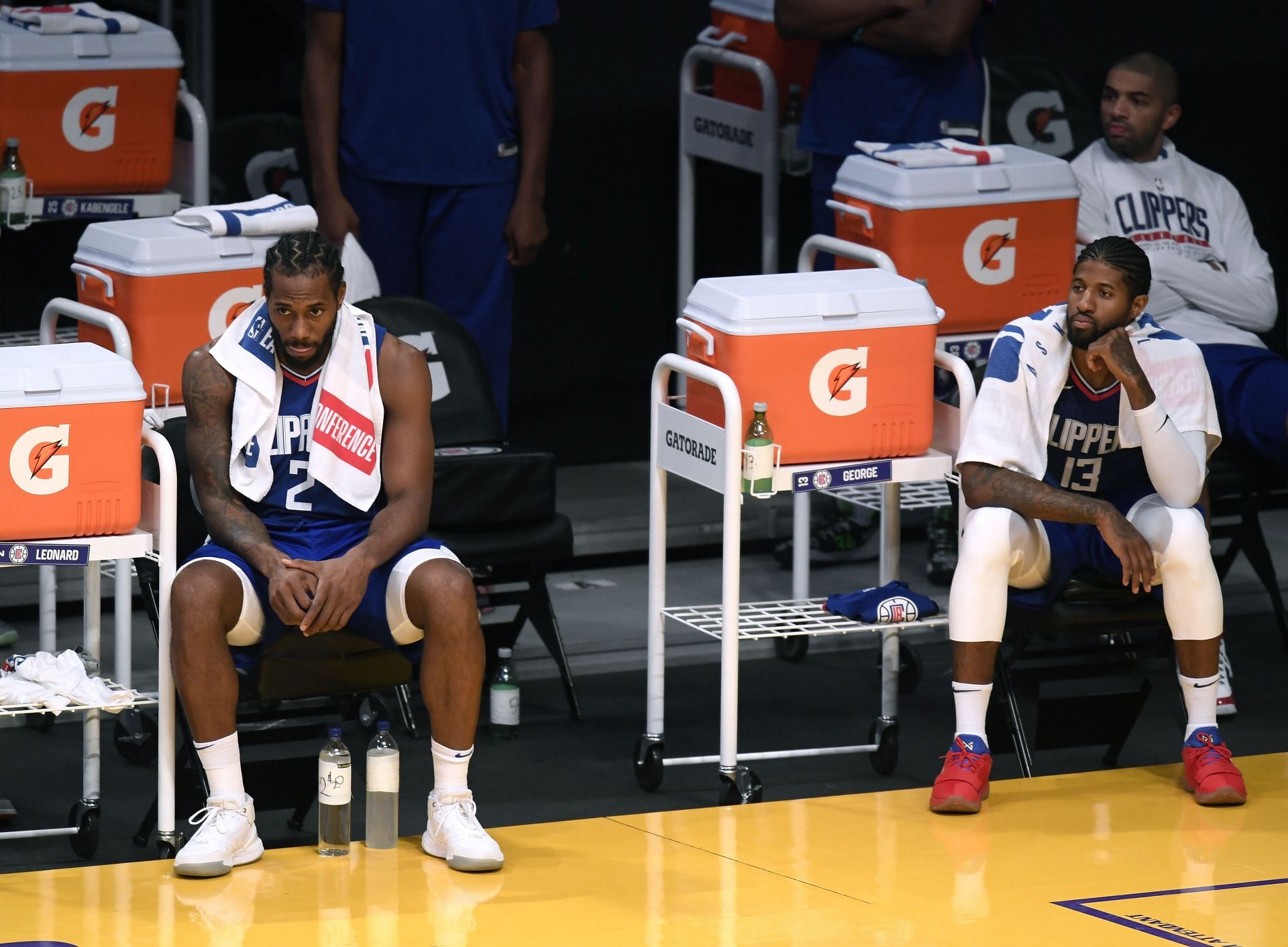
When the Los Angeles Clippers acquired Kawhi Leonard and Paul George in the 2019 offseason, they immediately became title contenders. Their four seasons together have been mired by injury woes. The playoffs saw both of them fully healthy. That added context makes this collapse so much worse.
The Clippers were considered the title favorites and when they faced off against the Denver Nuggets in the Western Conference Semi-Finals, everyone expected them to win. Leonard and George combined for only 24 points in Game 7, in what turned out to be a 15 point loss.
Had the Clippers won, it would have set up a long-expected playoff clash against the Lakers. Considering that the Clippers had a legitimate shot to win the title, this 3-1 collapse deserves a #2 ranking.
#1. 2015-16 Golden State Warriors
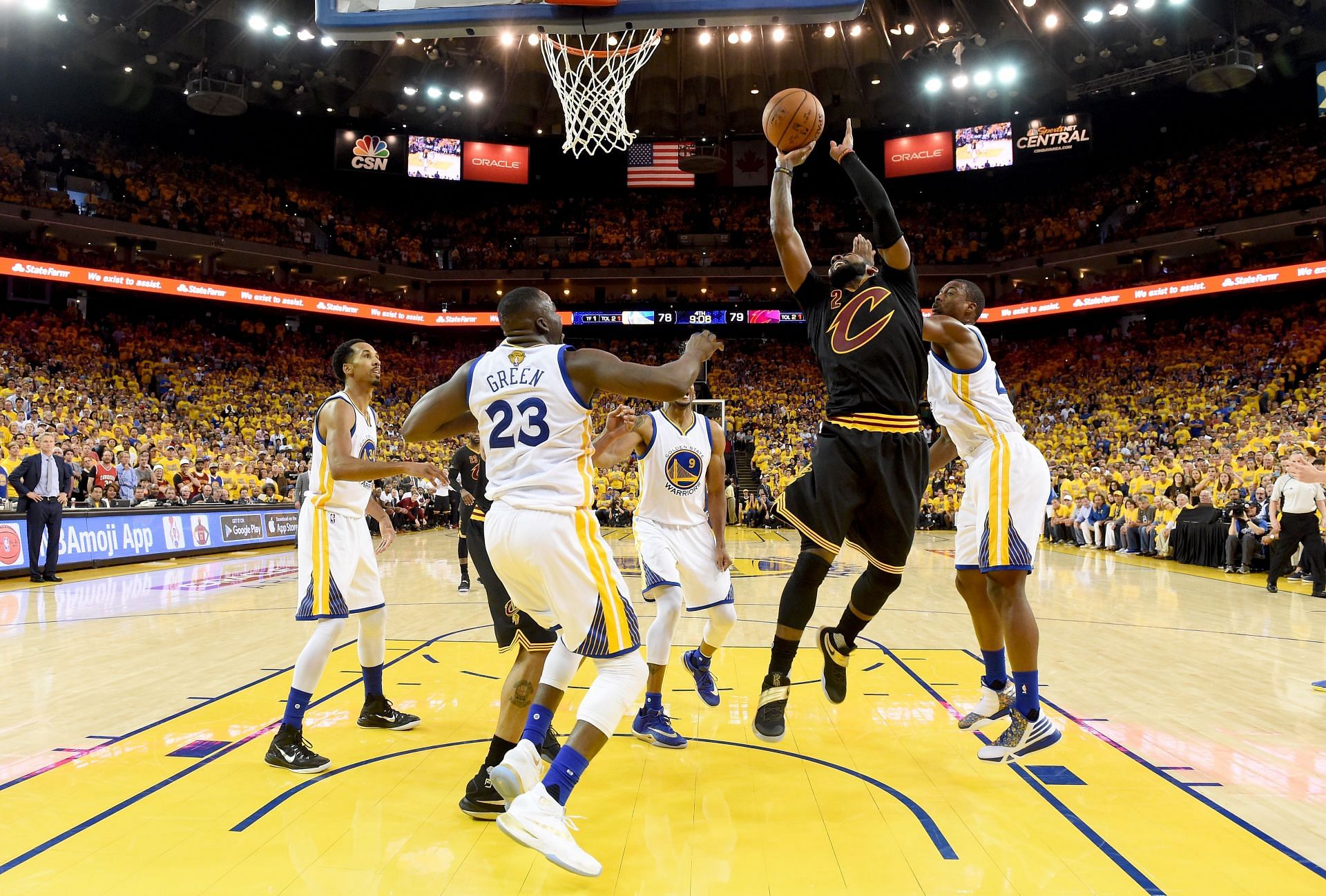
This one was an obvious choice for the #1 spot. The Golden State Warriors had won a record 73 games in the regular season. They were heavily favored over the Cleveland Cavaliers in the NBA Finals.
With home court advantage, the unanimous MVP Steph Curry and two other All-Stars in Klay Thompson and Draymond Green on their roster, this one should have been a slam dunk for the Warriors.
After the Warriors went up 3-1, everyone expected the series to be over. No team had come back from a 1-3 deficit in the NBA Finals at that point. What happened next is part of NBA lore.
LeBron James and Kyrie Irving took over. James put up 40+ points in both Game 5 & 6 to force a Game 7 at Oracle Arena. In Game 7, Curry and Thompson, the two best shooters in the game, scored only a combined 31 points on an absymal 12-36 from the field.
The Warriors who had a 39-2 record at home that year in the regular season, lost two games at home in this series, including the decisive Game 7. Needing to win just one game out of three to win the NBA Finals, and proceeding to blow it is definitely the worst collapse of them all.
The 16 wins which separated the Cavaliers and the Warriors is also the biggest regular season win differential among teams which blew a 3-1 lead.